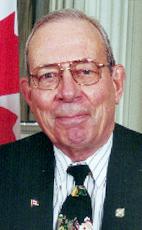Madam Speaker, I rise to address the House on second reading of Bill S-24, the Kanesatake interim land base governance act. I am extremely pleased to be bringing this proposed legislation before the House at this time.
As implementing legislation for the agreement with respect to Kanesatake governance and the interim land base between Canada and the Mohawks of Kanesatake, Bill S-24 is a key element of a broader process aimed at resolving the outstanding grievances of the Mohawks of Kanesatake and contributing to social harmony and economic development for the communities of Kanesatake and Oka in Quebec.
It has been more than a decade since the Oka crisis. A great deal has been accomplished since that time but we can go no further in our efforts to resolve outstanding grievances of the Mohawks of Kanesatake without this agreement and its implementing legislation.
It is time to recognize an interim land base for the Mohawks of Kanesatake and to establish law making powers for Kanesatake that other first nations have exercised for years.
In an effort to deal with Mohawk claims to the lands known as the Seigneury of the Lake of Two Mountains, in 1925 the Government of Canada began to purchase parcels of land for the use and occupancy of the Mohawks of Kanesatake. Over the years this has resulted in a patchwork land base so that today while much of the Kanesatake land base consists of adjoining lands, at least some Kanesatake Mohawk lands are interspersed with non-Mohawk lands in and around the village of Oka.
The legal status of these federal crown lands has never been resolved, which has resulted in uncertainty about the application and enforcement of laws on Kanesatake Mohawk lands. This uncertainty has seriously undermined the ability of the Mohawks of Kanesatake to govern themselves.
Bill S-24 would eliminate this uncertainty by recognizing for the first time an interim land base for the Mohawks of Kanesatake. It provides that Kanesatake Mohawk lands would fall under subsection 91(24) of the Constitution Act, 1867, but not under the Indian Act. Like many other first nations, the Mohawks of Kanesatake want to extract themselves from the cumbersome provisions of the Indian Act, not become further embroiled in them.
Bill S-24 would ensure that the Mohawks of Kanesatake have powers similar to the authorities exercised by other first nations under the Indian Act. They would be empowered to adopt and enforce land related laws in such areas as resource management, land zoning, residency, waste management, the health and quality of life of residents, construction and fire safety. In the event of any conflict between Kanesatake laws and federal laws, the federal laws would prevail.
The bill provides that the exercise of Kanesatake powers would be subject to the terms of a land governance code setting out the principles by which the Mohawk council of Kanesatake would operate. The code would ensure open and responsible governance by the council, in the best interests of the community, with full political and financial accountability.
Bill S-24 would also ensure that Kanesatake had the authority to enforce its community laws. Kanesatake and Canada are already working with the province of Quebec to conclude a separate agreement on the administration of justice, after which Kanesatake would have the authority to appoint justices of the peace to adjudicate disputes over its laws.
To ensure that the Kanesatake Mohawk lands and non-Mohawk properties in the village of Oka are subject to compatible legal regimes, Bill S-24 would require a harmonization of Kanesatake laws and Oka by-laws on neighbouring lands.
I am pleased to report that the municipality of Oka and its mayor are supportive of the land governance agreement in Bill S-24 and that relations between Oka and Kanesatake are greatly improved. Representatives of these two communities are already meeting to negotiate a harmonization agreement for their respective lands in the village and to address other issues of mutual concern.
I want to assure hon. members that the agreement to be implemented by Bill S-24 is without prejudice to any aboriginal or treaty rights of the Mohawks of Kanesatake, to Kanesatake's historic grievance in relation to the Seigneury of the Lake of Two Mountains or to further more far reaching agreements.
There is a turnaround under way in Kanesatake. Although many issues remain to be resolved, people are optimistic about their future. They are proud of the Kanesatake police force, which for several years now has brought law and order to the community and enhanced the security of all residents in Kanesatake territory, in neighbouring Oka and their neighbouring municipalities. They are proud of their nursing home for the elderly. They are proud of the Mohawk immersion school and youth centre now under construction.
Bill S-24 will lay the foundation for true stability in Kanesatake, the kind of stability that is indispensable to real economic growth and the sustainable nature of the community. With this bill the Mohawks of Kanesatake and their neighbours in the municipality of Oka can all look forward to greater economic opportunity for the Kanesatake-Oka region.
Clearly we are on the right path. Bill S-24 is proof positive that negotiation and reconciliation are the best options for Canada, for the Mohawks of Kanesatake and for the non-Mohawk residents in the region.
I would like to thank our colleagues in the other place for their review and approval of Bill S-24. The hon. senators recognize the merits of the of the land governance agreement that would be implemented through this proposed legislation. They have embraced the opportunity to contribute to the healing process in the Kanesatake-Oka region.
I would like to recognize the co-operation we have had from all parties in the House with respect to Bill S-24, and to urge hon. members to complete this bill at the first opportunity.

